
Guild Wars Microservices
and 24/7 Uptime
Stephen Clarke-Willson, Ph.D.
Studio Technical Director, ArenaNet

Outline
This talk is in four main parts:
1. Meta
2. Overview of microservices in Guild Wars
3. Orchestration
4. Restartability: Problems and solutions

Part One: The Meta

Introduction (me)
● Game development 25 years
● Mixed roles over time of producer,
programmer, executive
● Big list of games at Mobygames (mostly
accurate)
● Eleven years at ArenaNet

Guild Wars and Guild Wars 2
● Guild Wars introduced MMO-style game
with no monthly fee; launched 2005
● Guild Wars 2 is a larger, open-world
game, with multiple game modes, and
still no monthly fee; launched 2012


Talk meta
● Originally submitted in 2014 for GDC
2015
● Advisory board feedback: that’s cool, but
you don’t explain how to restart servers
● Me: I can’t even explain that to my staff
● Pulled talk to mull that over

Microservices became a thing
● Kubernetes – 2014
● Docker 1.0 – 2014
● DockerCon – 2016 – gave me most of my
terminology
● Suddenly I had a path to explaining how
we build things

Credit where credit is due
● Mike O’Brien designed and wrote original version of
Battle.net at “another company”
● Pat Wyatt wrote most Guild Wars 1 back-end servers as
restartable services
● Glen Knowles wrote the Guild Wars 2 microservice
infrastructure and many of the services
● Halldor Fannar gave lots of constructive feedback on this
talk

Part Two: Overview of Guild Wars
Services

What is a microservice?
● Microservices are the evolution of the original Unix utility
concept of “doing one thing well”.
● Microservices are like well factored subroutines … except
asynchronous and separately restartable.
● Originally enabled by “Chroot” file system isolation in
Unix; an alternative to virtualization.
● Most of our microservices have process-level isolation;
restartability is much harder without that.
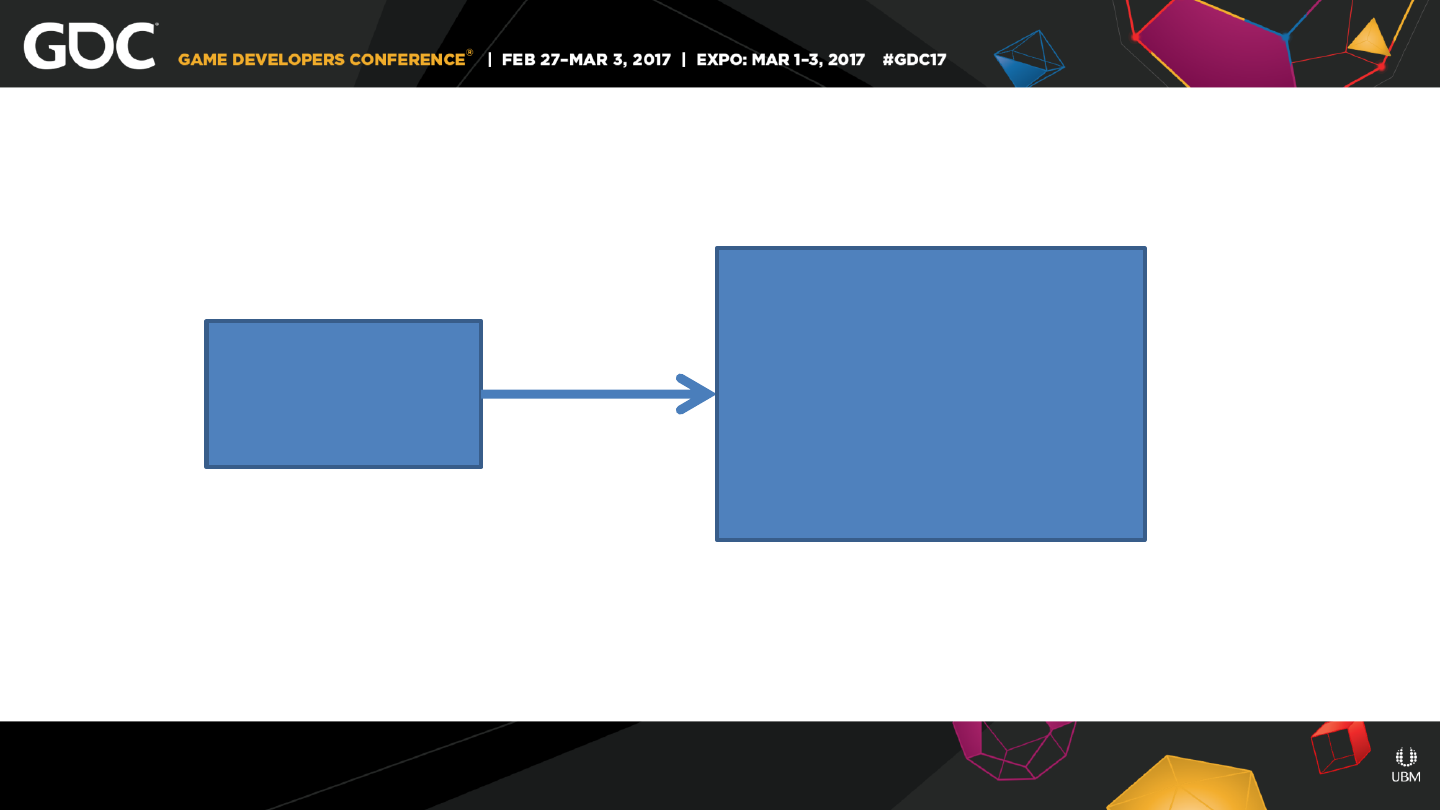
Player’s view of a game server:
Game
Client
Giant Monolithic
Game Server
SIMPLE!
(Too Simple)
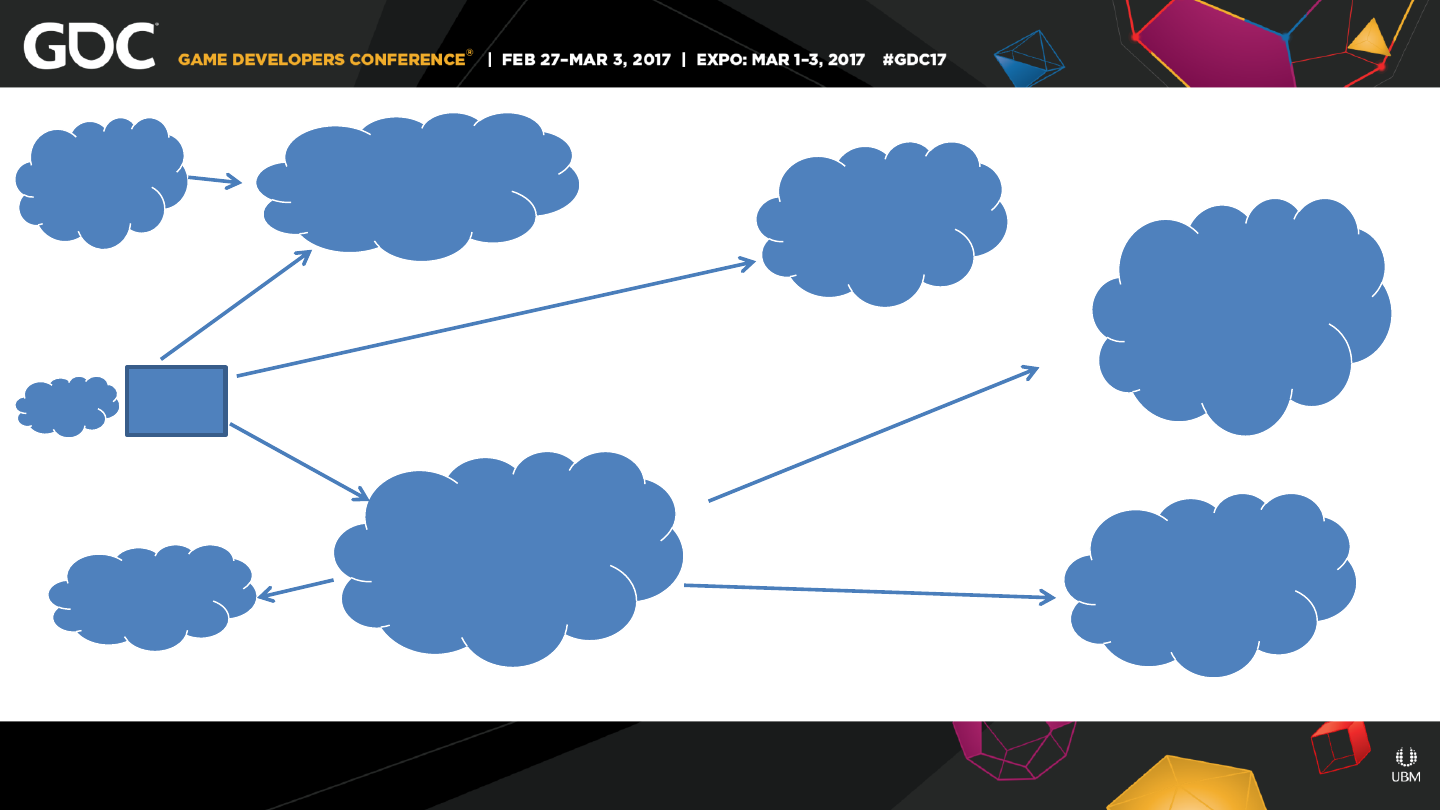
Client
Build
Analytics
Bots
“Login
Servers”
[Social]
GW2 services
(e.g.,
tournaments)
GW2
Commerce
Actually…
…
Patching
(CDN)
“Map”
Servers
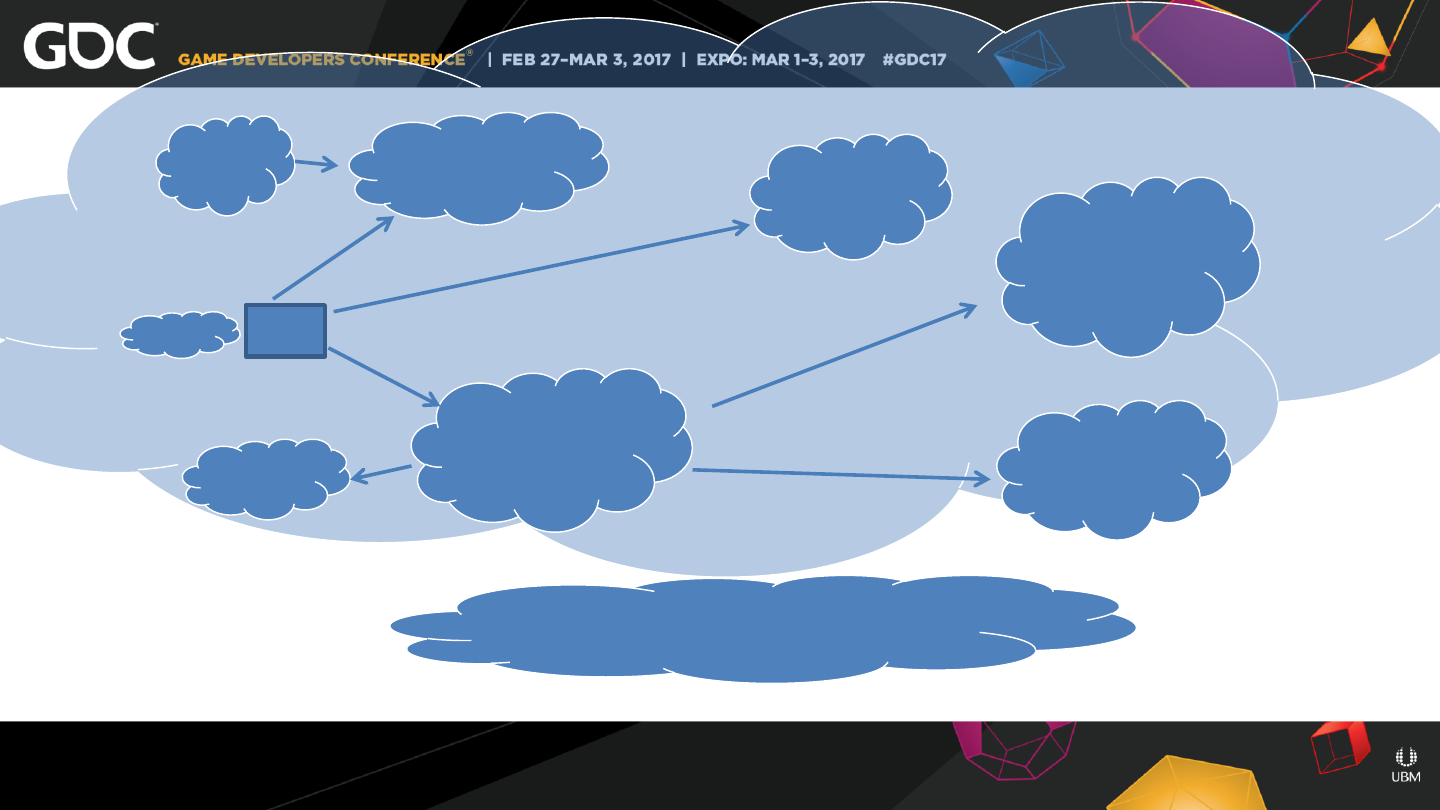
Orchestration
Client
Build
Analytics
Bots
“Login
Servers”
[Social]
GW2 services
(e.g.,
tournaments)
GW2
Commerce
…
Patching
(CDN)
“Map”
Servers

About 80 types of microservices
AccessKeySrv
CliGate
ForwardSrv
ListSrv
PresenceSrv
SsoAcctSrv
AccountSrv
ContentSrv
GameGate
LogQuerySrv
PvpGate
StreamSrv.dll
AdSrv
CryptSrv
GemStoreSrv
MailSrv
PvpQuerySrv
TournSearchSrv
AnProxySrv.dll
DataSrv
GroupSrv
MetricsSrv
PvpSrv
TournSrv
ArenaSrv
(host)
DbNameSrv.dll
GwSrv.dll
NameSrv
PvpStatSrv
TradeSrv
Auth2fSrv
DbSqlSrv.dll
IndexSrv
OAuthSrv
ReflectionSrv
WalletProxySrv
AuthSrv
DbSrv
IpCheckSrv
PhoneSrv
RevenueSrv
WalletSrv
AuthSrv.dll
DeliverySrv
ItemDataSrv
PitchingSrv
RouteSrv
WebGate
BillingSrv
DllSrv.dll
ItemSearchSrv
PlayerlessSrv
SessGateSrv
BrokerSrv
ErrLogSrv
JsSrv (V8 host)
P
-Gate
SiteSrv.dll
+ ~12 Web Services
CensusSrv
EventLogSrv
LadderSrv
P
-Proxy
SmsSrv
ChannelSrv
ExchangeSrv
LeaderboardSrv
P
-Srv
SpawnSrv
(host)

Hosts
● ArenaSrv.exe – hosts services that end in .dll
● SpawnSrv.exe – hosts processes
● JsSrv.exe – V8 (Javascript) host for web
services
● Hosts listen on a single port and delegate
connections

A Microservice Cluster
●
PvpGate
●
PvpQuerySrv
●
PvpSrv
●
PvpStatSrv
●
TournSrv
●
TournSearchSrv

The “Macroservice” (The Game)
The “macroservice” that runs the game maps has nearly the
same features as a microservice, including dynamic
configuration and deployment and multiple simultaneous
versions, but it’s a big piece of software; and individual maps
(except World V World) are not restartable.
Similar principles guided it’s development but it is decidedly
not “micro”. The game can run multiple builds at once.

Concurrent Builds
“ArenaSrv”
“Build 1234”
“Build 1235”
“Build 1237”

Inside a game build
Build 1234
Game Server
Game Server
Game Server
Game Server
Game Server
Game Server
Game Server
Game Server
Game Server
Game Server
Game Server
Game Server
Game Server
Game Server
Map
Maps are time-sliced amongst a blade’s cores.
Game Server
Game Server
Game Server
Game Server
Game Server
Game Server
Game Server
Game Server
Game Server
Game Server
Game Server
Game Server
Game Server
Game Server
Map

SpawnSrv.exe
● Can run multiple builds of microservices
● Starts up the new build
● Routes new traffic to it
● Ensures it runs without crashing
● Shuts down the old build
● A ”build” consists of services that talk to each
other.

Routing (aka return address)
● Old way:
● IP (from config file) + Port + “ProgramId” +
Build + Map + PlayerId
● PlayerId was a transitory value unique to a
specific map server.
● New way: (Implicit) ProgramId + Player
(or Group) Guid.

Part Three: Orchestration

Wikipedia:
“Orchestration is the automated
arrangement, coordination, and
management of computer
systems, middleware, and services.”

Orchestration at ArenaNet
● Allocation of services to hardware
● Permissions
● Routing
● Isolation
(BTW, we don’t use virtualization.)

Deploying Configurations
● There are two main configuration files with big lists of “server
groups” which point to hardware.
● “Hardware addressing” is (still) by IP.
● Some hardware has multiple IPs and therefore looks like multiple
machines.
● We got rid of Guild Wars 1 virtualization by assigning processes
to IP addresses and letting the OS schedule. We know a lot
about how the OS schedules things. VMs just added
another layer of complexity to scheduling.

Blessing of hardware stability
● We own all of our equipment
● It’s made by a reputable vendor and has been
stable for four+ years
● We control the datacenter infrastructure
● Stability gives us Predictability
● Predictability guided our deployment strategy.

Configurations
● A section naming service groups (“clusters”) and
their services
● A section listing permissions
● A section mapping groups to IPs
● Configurations are dynamically updatable … but
not automatically; humans make the changes

Simplest configuration:
127.0.0.1: all
all: (a list of all the services)
Developers can run the entire stack on
their development machines

Configurations aid routing
● Routing is a combination of information in the
configuration and self-registration
● In a perfect world, there would only be self-
registration (and advertising over DNS)
● That’s not our world (yet)
● Game (“Map”) servers self-register
● Many services self-register with “RouteSrv”

Monitoring
● Monitoring is the “end game” for orchestration
● We gather about a million time-sequenced data values per
minute across both Guild Wars games
● Most sample code you will find in books or the web
demonstrates use of logging; save it for when it matters
● AtomicAdd(&someVal, 1) is super cheap and aggregates
well
● A separate microservice collects and aggregates perf data
● Perf data is visualized via Graphite (https://graphiteapp.org/)

Using visualizations:
This graph suggest removing dependency on hardware continuity
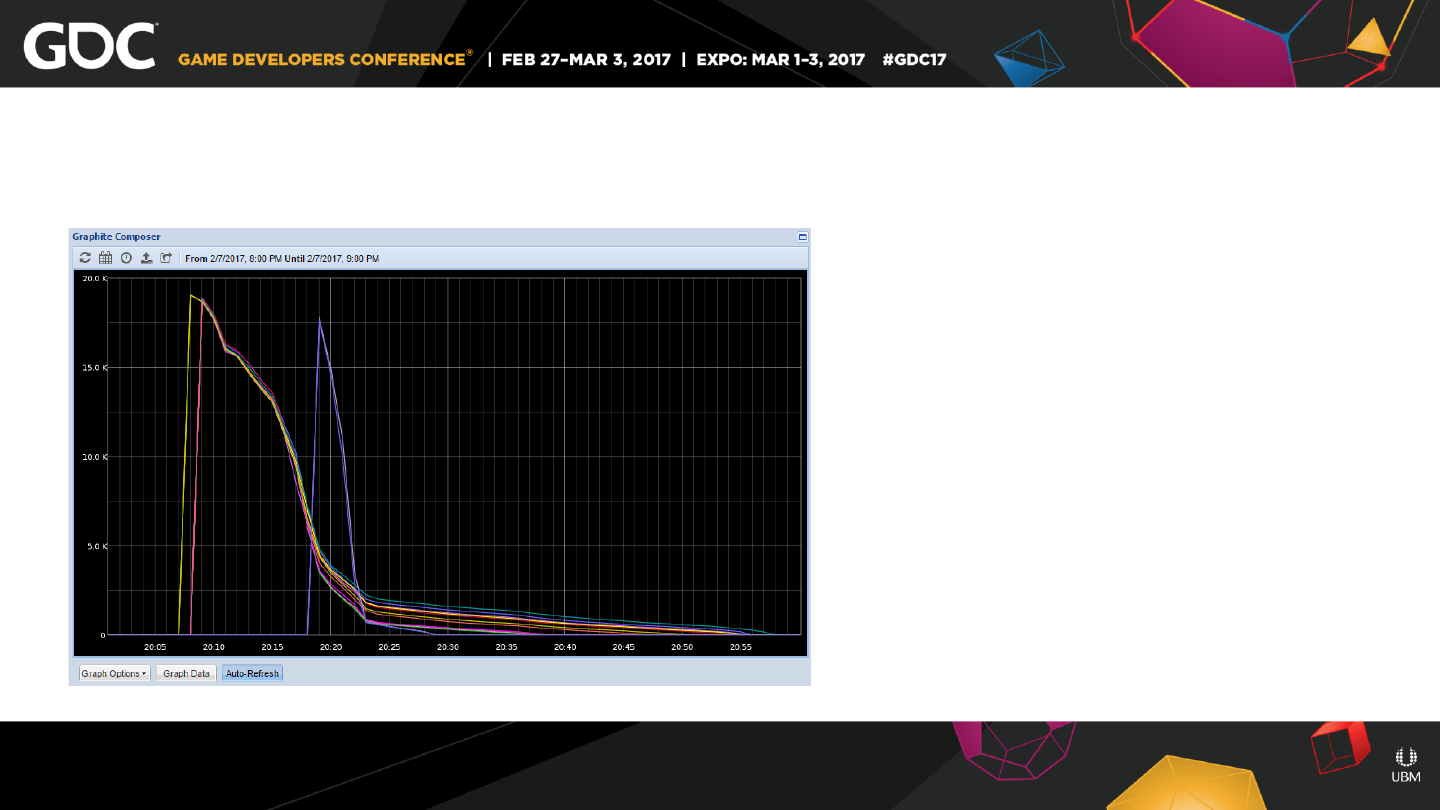
Using visualizations:
Watching a
build dist (living
world patch –
18K files – the
night before
release …)
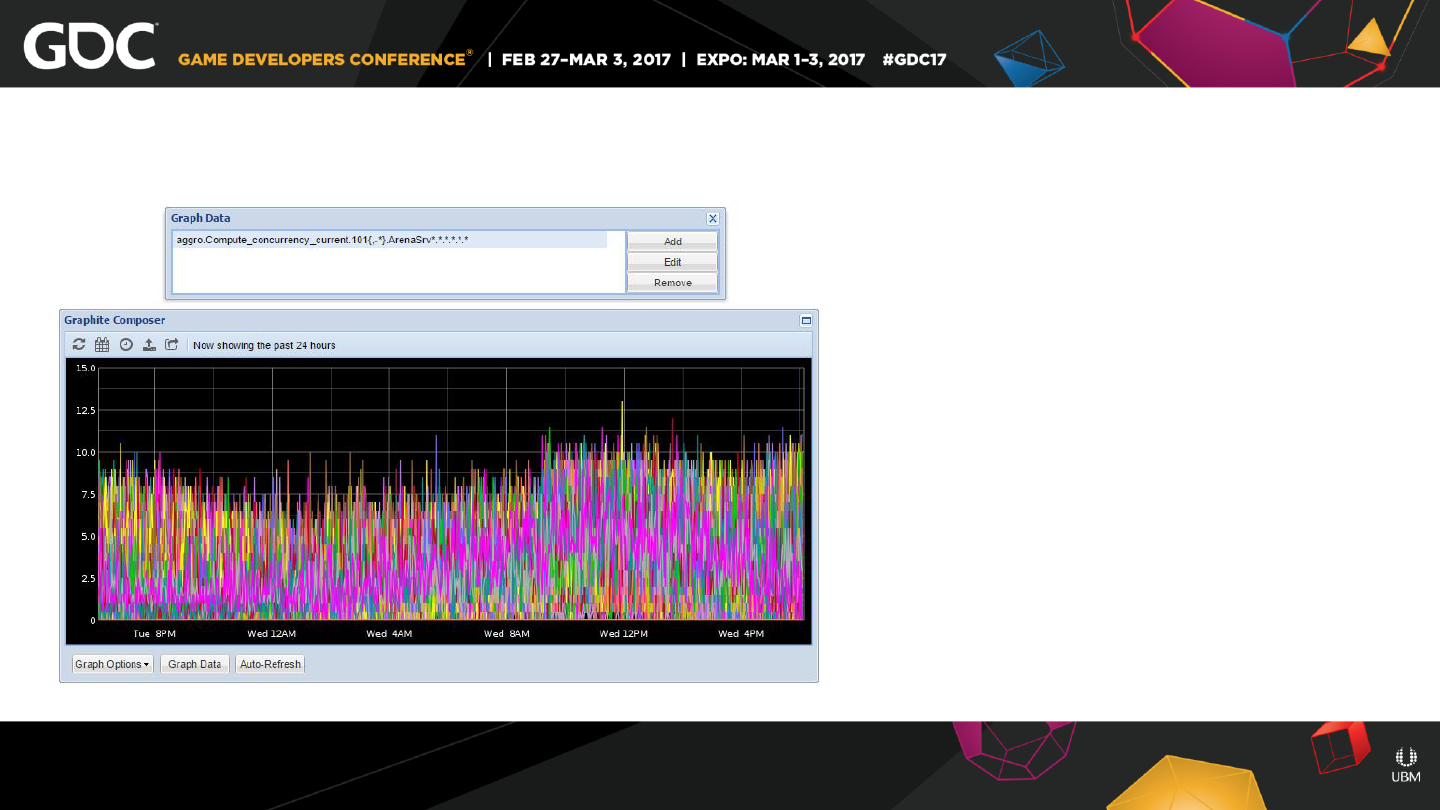
Using visualizations:
Number of
cores / blade in
use …
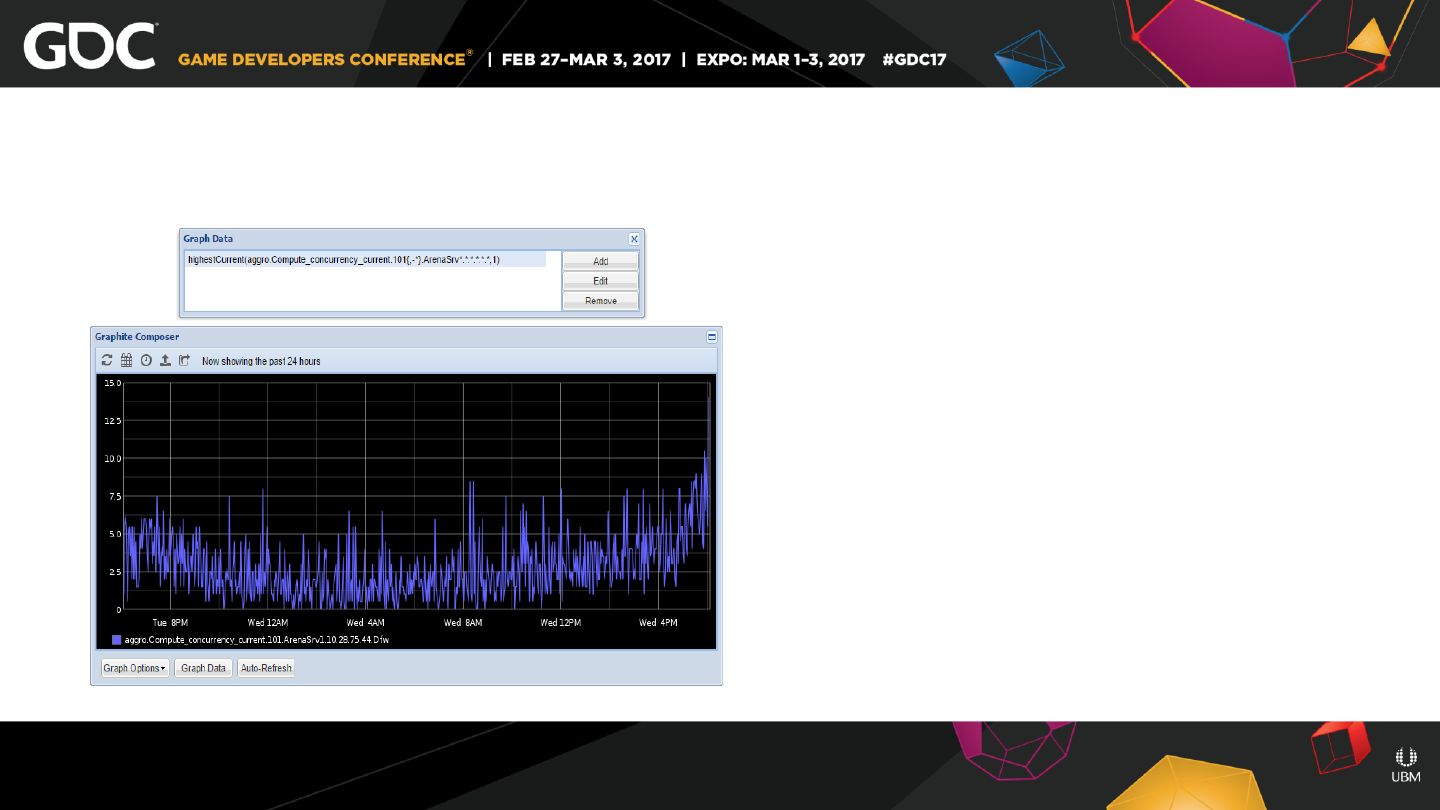
Using visualizations (aggregation):
Max number of
cores / blade in
use …
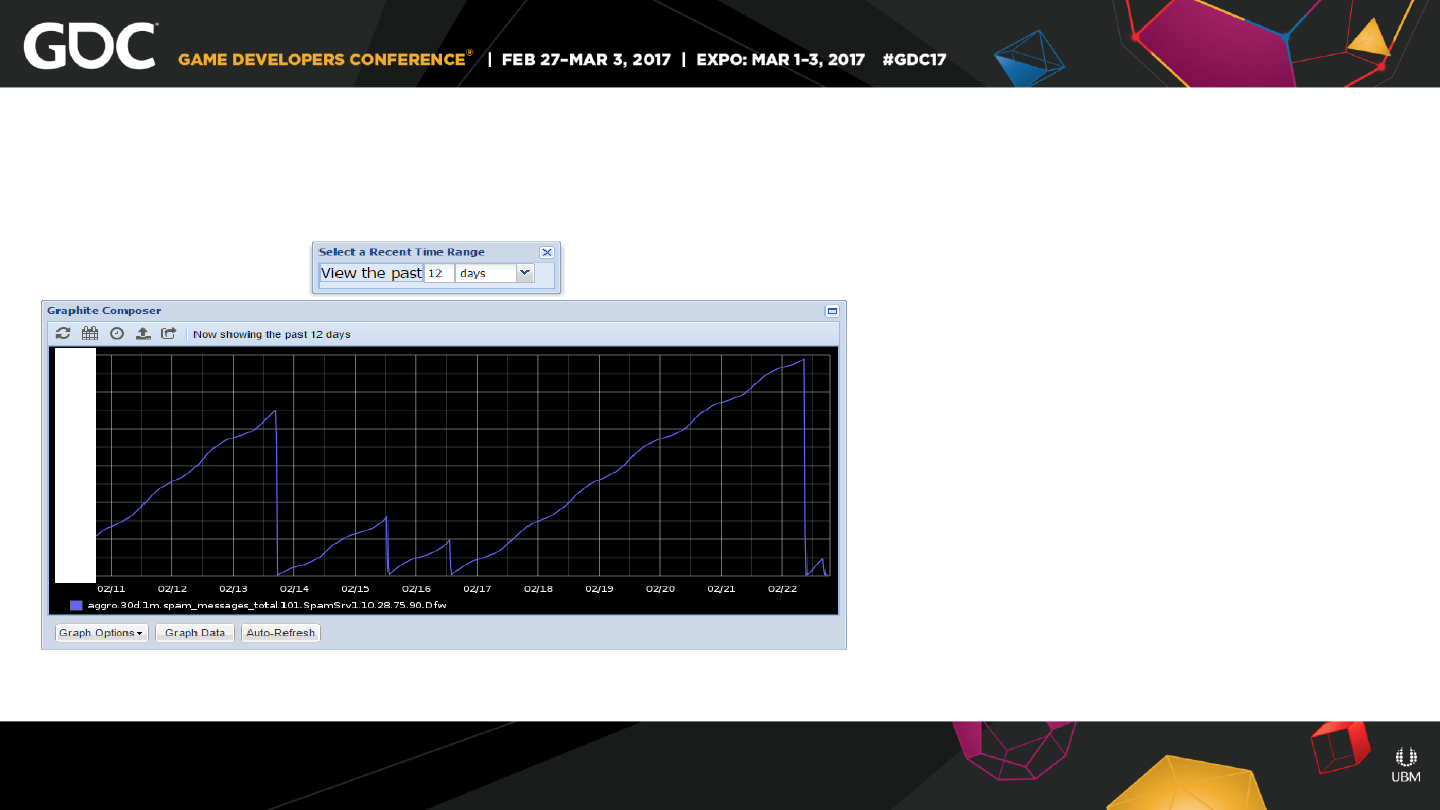
Using visualizations:
Total spam
reported by
players (since
server restart)
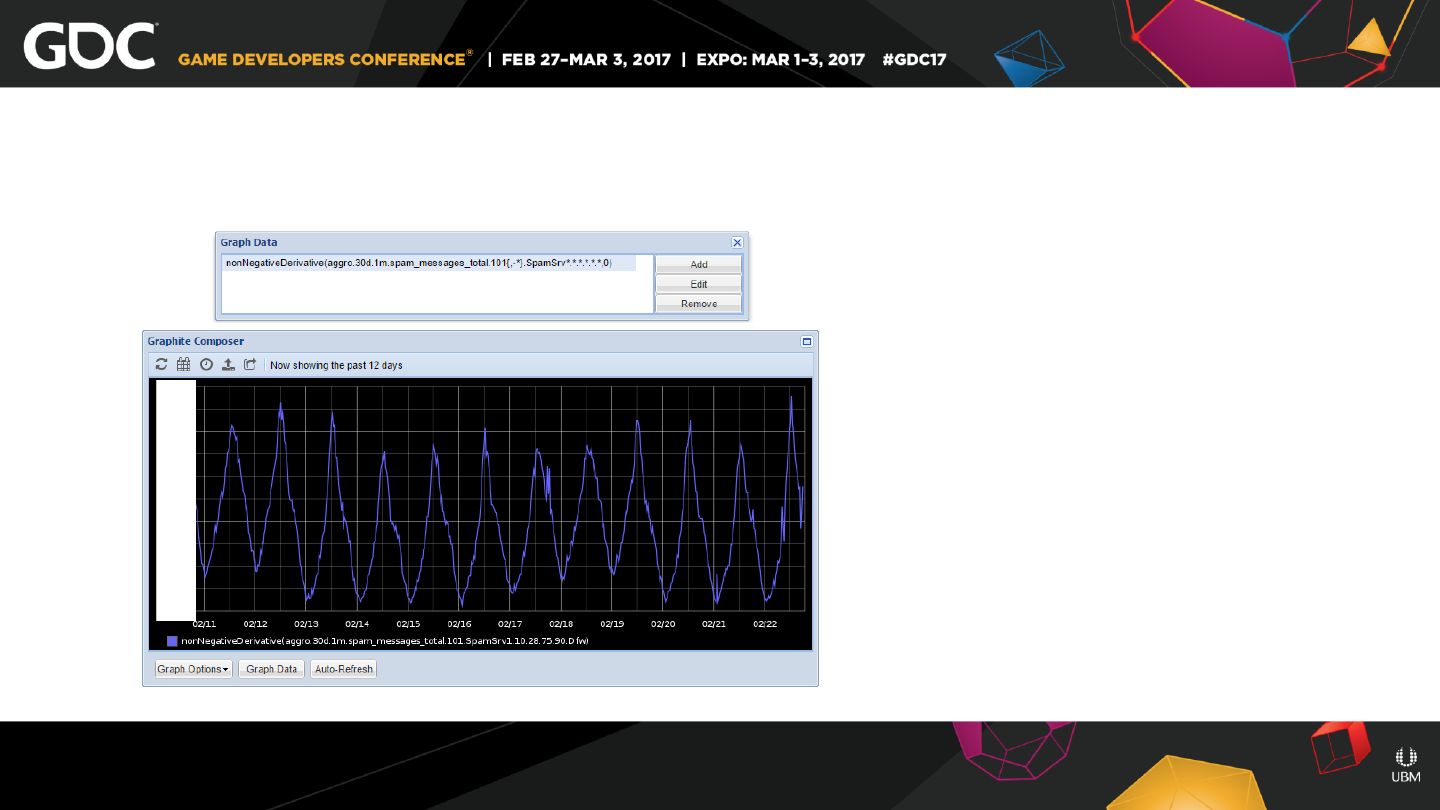
Using visualizations:
Spam reported
by players
transformed to
non-negative
derivative
(shows rate;
hides restarts)

Part Four: Restartability
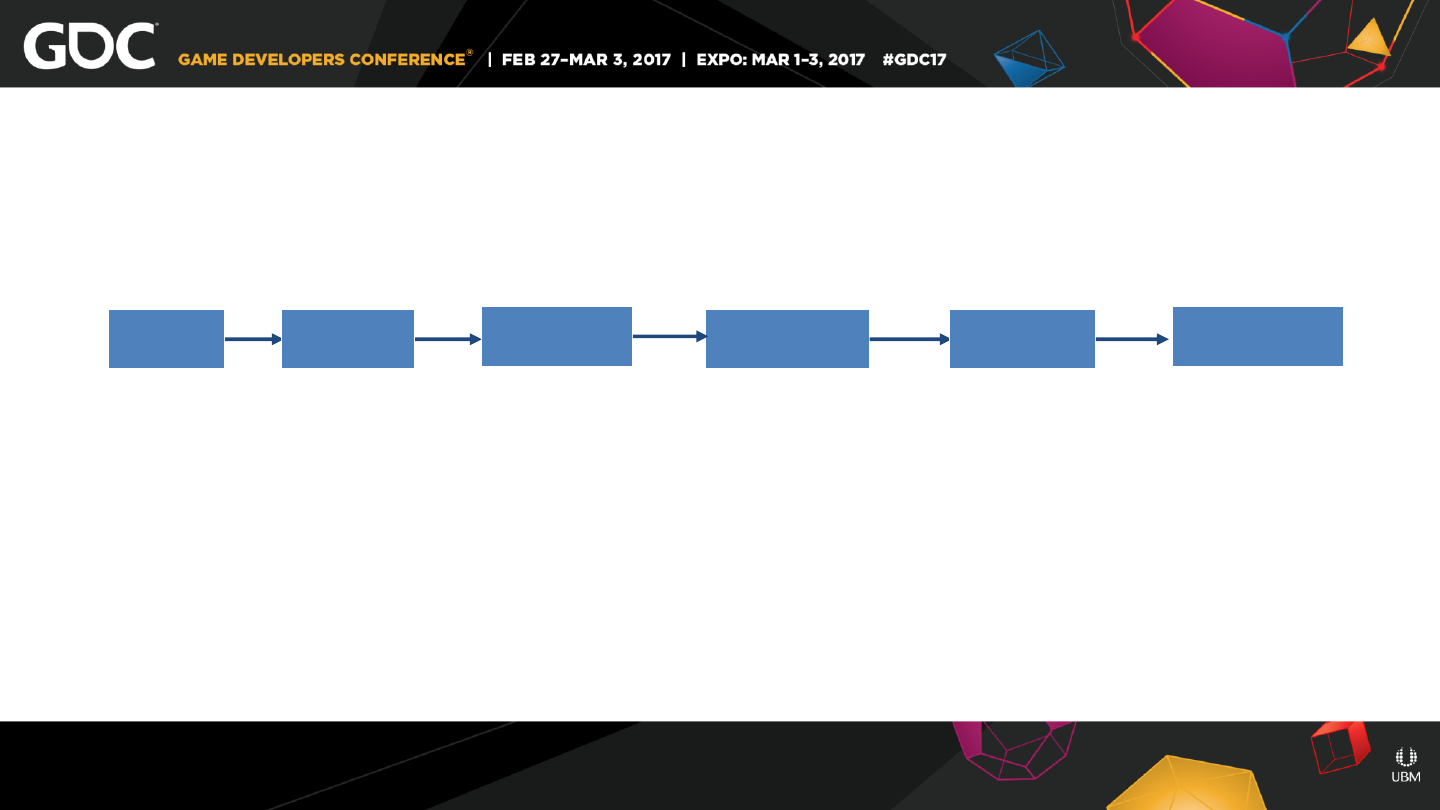
“Simple” n-tier architecture
● Each layer optionally caches state from
the upstream storage or service
● State recreated from upstream service
Client Web Compute Database
Storage (Db)
Cache

Why stateful services?
● “Most performance problems are solved with
more RAM” – Bill Joy
● Local state is a highly optimized cache
● Generally non-authoritative

Naïve stateful recovery
● Store all state on disk or in a database for restart
● For instance, a tournament server could store the state of
the tournament in case of restart
● … but what if you don’t know how much time passed
between restarts?
● Data on disk goes stale quickly; tournament state may
have changed

Authoritative Stateful Service
● A service that bosses other services
around
● Generally by allocating resources
● Must have accurate view of reality
● Non-authoritative services can lag reality;
authoritative services must be accurate

Authoritative Restart
● Storing (semi-)transient data on disk or in a database
rarely reflects reality, because reality changes quickly
● So cache useful state locally in RAM and requery from
clients on restart
● Not significantly different from n-tier case, except
backwards!
● Possibly apocryphal story about Uber’s catastrophic
recovery plan.

Guild Wars 1 tournament state
● The Heroes’ Ascent tournament ladder
● A continuous global tournament between teams of 8
players
● Each map knows who is in it and where they stand in the
tournament
● When the tournament server restarts, it queries each
map to re-derive the state of the tournament
● No tournament state is saved by the tournament server
across restarts!

Guild Wars 2 World v World
● World vs. World vs. World maps have game state that persists
for a week (or whatever you configure)
● The game state is stored in the load balancer and in the maps
● The load balancer can restart; and the maps can restart (e.g.,
when a new game build comes out); and as long as both don’t
restart at the same time the state is maintained
● (The load balancer secretly keeps an emergency backup of the
state but it is rarely used – maybe once every few years.)

Guild Wars 1 Observer Mode
● “Stream server” used hybrid solution
● Allowed delayed playback while recording
● Server stored (possibly incomplete) recordings on disk
● Did crazy dance with game servers to continuing recording
and/or playback after stream server restart
● Very hard; way easier (if we had the RAM) to keep the
authoritative recording on the game server until
completed

Transaction Restartability
● Restarting a service means it is off-line
for 10 to 20 seconds
● It’s a pain to move the state to a sibling
service for such a short outage
● So a strategy for retrying transactions is
important for such a brief outage

Rules for retrying transactions
● Only retry on time-out – all other errors should be reported as errors and
the transaction abandoned
● You should only automatically retry a few times (4-6), about every 30
seconds
● Most problems resolve themselves in a couple of minutes or not at all;
might as well give up (which generally helps rather than hinders load
issues, if that was the problem)
● Given application knowledge, you might make your own retry rules for
specific transactions (e.g., game client patching retries forever)
● Random exponential retry is a waste of effort at the application level and
just introduces uncertainty

The oddity of “reconnect before disconnect”
● You will want to write code that assumes that
disconnects always occur before reconnects
(e.g., caused by a server restart)
● And it will be true on your developer machine
● In reality, you can only trust the most recent
connection from a specific machine/service

What goes wrong in the DC
● Client A is connected to Server B
● Client A (which is also typically a server for someone else) disconnects
for an odd reason (OS crash, yanked cable, … ?)
● Server B does not get an immediate TCP Close; instead the connection
times out after n seconds
● Client A restarts/reconnects to Server B before the old connection times
out on Server B
● Server B thinks it has two connections! And only one of them works.
And it is the second, newer connection. Hence “reconnect before
disconnect.” The fix is to only use the most recent connection, no matter
what you think is in-flight on the old one.

Microservices and Orchestration:
Fun you can have at home
● It’s a great time to be learning to
program
● Not only can you “learn by doing” with
free client software (Unity) but you can
also do the same with server software

• Build your own datacenter
cluster for $230.00
• Each Pi3 is $50.00, plus the
power supply ($30.00)
• You can run Docker and other
free software to host/orchestrate
your microservices
• Four Pi’s provides enough
complexity to challenge you

4 PI’s are enough to learn a lot, e.g.:
● Restarting all services at once (cold start)
●IP addresses and DHCP
● Deploy your services automatically
● Image your OS and environment
● Monitor health (esp if you put them on the
Live internet!)
● Backup / Restore!

Summary
● ArenaNet has been doing Microservices for fifteen years,
except we didn’t call them that
● Restartability was engineered into every server (except
the game map server) from day one
● Adding it later is hard (WvWvW case)
● You can build your own datacenter for $230.00 and have
fun with microservices!

